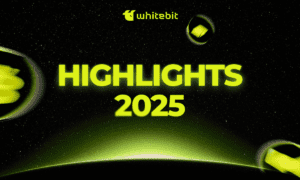Knowing the right programming languages is important for a successful career in blockchain and cryptocurrency development. Solidity, Python, JavaScript, C++, Go, Rust, Java, and SQL each offer unique advantages for different aspects of blockchain technology. Whether you are developing smart contracts, building decentralized applications, or managing blockchain data, learning these languages will equip you with the skills needed to tackle the challenges of 2024 and beyond. Investing your time in learning these languages will ensure you stay ahead in the rapidly evolving field of blockchain and cryptocurrency development.
Solidity:
The Smart Contract Specialist:
Why Learn Solidity?
Solidity is the go-to language for writing smart contracts on the Ethereum blockchain. Its syntax is similar to JavaScript, making it accessible for developers with a web development background.
Key Features
Purpose-Built:
Designed specifically for Ethereum smart contracts.
Strong Typing:
Ensures security and reliability in contract execution.
Extensive Documentation:
Rich documentation and active community support.
Use Cases:
Smart Contracts:
Creating decentralized applications (DApps) on Ethereum.
Token Creation:
Developing ERC-20 and ERC-721 tokens.
DeFi Applications:
Building decentralized finance protocols.
Python:
The Versatile Developer’s Friend:
Why Learn Python?
Python’s simplicity and readability make it an excellent choice for blockchain development. Its extensive libraries and frameworks support various aspects of blockchain technology.
Key Features:
Ease of Learning:
Clean and readable syntax.
Rich Libraries:
Libraries like Web3.py for Ethereum.
Versatility:
Suitable for scripting, data analysis, and backend development.
Use Cases:
Blockchain Prototyping:
Rapidly prototyping blockchain applications.
Data Analysis:
Analyzing blockchain data and transactions.
Automated Scripts:
Automating blockchain-related tasks.
JavaScript:
The Full-Stack Blockchain Developer:
Why Learn JavaScript?
JavaScript, along with frameworks like Node.js, is essential for full-stack development in blockchain. It enables the creation of both frontend and backend components of blockchain applications.
Key Features:
Ubiquity:
Runs in browsers and on servers with Node.js.
Asynchronous Programming:
Efficiently handles asynchronous operations.
Rich Ecosystem:
A wide range of libraries and frameworks.
Use Cases:
DApp Development:
Creating decentralized applications with front-end interfaces.
Smart Contract Interaction:
Interacting with smart contracts using Web3.js.
APIs:
Developing APIs for blockchain services.
C++:
The High-Performance Language:
Why Learn C++?
C++ is known for its performance and control over system resources. It is widely used in blockchain projects that require high efficiency and performance.
Key Features:
Performance:
High execution speed and efficient memory management.
System-Level Access:
Direct access to system resources and hardware.
Robust Libraries:
Libraries for cryptographic functions and network communication.
Use Cases:
Blockchain Core Development:
Building the core components of blockchain networks.
Cryptographic Algorithms:
Implementing cryptographic functions.
Consensus Algorithms:
Developing consensus protocols for blockchain.
Go:
The Concurrent Programming Pro:
Why Learn Go?
Go, or Golang, is designed for performance and concurrency. Its simplicity and efficiency make it ideal for developing scalable blockchain applications.
Key Features:
Concurrency:
Excellent support for concurrent programming.
Performance:
Fast execution and efficient memory management.
Simplicity:
Clean and concise syntax.
Use Cases:
Blockchain Platforms:
Developing blockchain platforms like Hyperledger Fabric.
Microservices:
Building microservices for blockchain applications.
Network Communication:
Implementing peer-to-peer networking protocols.
Rust:
The Secure and Efficient Choice:
Why Learn Rust?
Rust offers memory safety and high performance, making it suitable for secure and efficient blockchain development. It prevents common programming errors through its ownership model.
Key Features:
Memory Safety:
Prevents memory-related errors.
Performance:
Near C-level performance with safety guarantees.
Concurrency:
Excellent support for concurrent programming.
Use Cases:
Blockchain Core Development:
Developing secure and efficient blockchain cores.
Smart Contracts:
Writing secure smart contracts for platforms like Solana.
Cryptographic Functions:
Implementing cryptographic operations securely.
Java:
The Enterprise Blockchain Developer:
Why Learn Java?
Java’s platform independence and robustness make it ideal for developing enterprise-level blockchain solutions. It is widely used in large-scale, distributed systems.
Key Features:
Platform Independence:
Runs on any device with the Java Virtual Machine (JVM).
Robustness:
Strong performance and reliability.
Scalability:
Suitable for building scalable blockchain applications.
Use Cases:
Enterprise Applications:
Developing enterprise-grade blockchain solutions.
Smart Contracts:
Writing smart contracts for platforms like Hyperledger Fabric.
Blockchain Frameworks:
Building blockchain frameworks and tools.
SQL:
The Data Querying Essential:
Why Learn SQL?
SQL is crucial for managing and querying blockchain data. Understanding SQL helps in optimizing database performance and ensuring efficient data handling.
Key Features:
Data Manipulation:
Powerful language for managing and querying databases.
Integration:
Works with most relational database management systems (RDBMS).
Efficiency:
Efficiently retrieves and manipulates data.
Use Cases:
Blockchain Databases:
Managing blockchain-related databases.
Data Analysis:
Analyzing and querying blockchain data.
ETL Processes:
Extracting, transforming, and loading data in blockchain environments.
Conclusion:
Blockchain and cryptocurrency are changing various industries, from finance to supply chain management. As these technologies continue to grow, the demand for skilled developers in blockchain and cryptocurrency development increases. In this article, we will explore the best programming languages to learn in 2024 for building blockchain applications and cryptocurrencies. We will delve into the strengths, features, and specific use cases of each language.



































